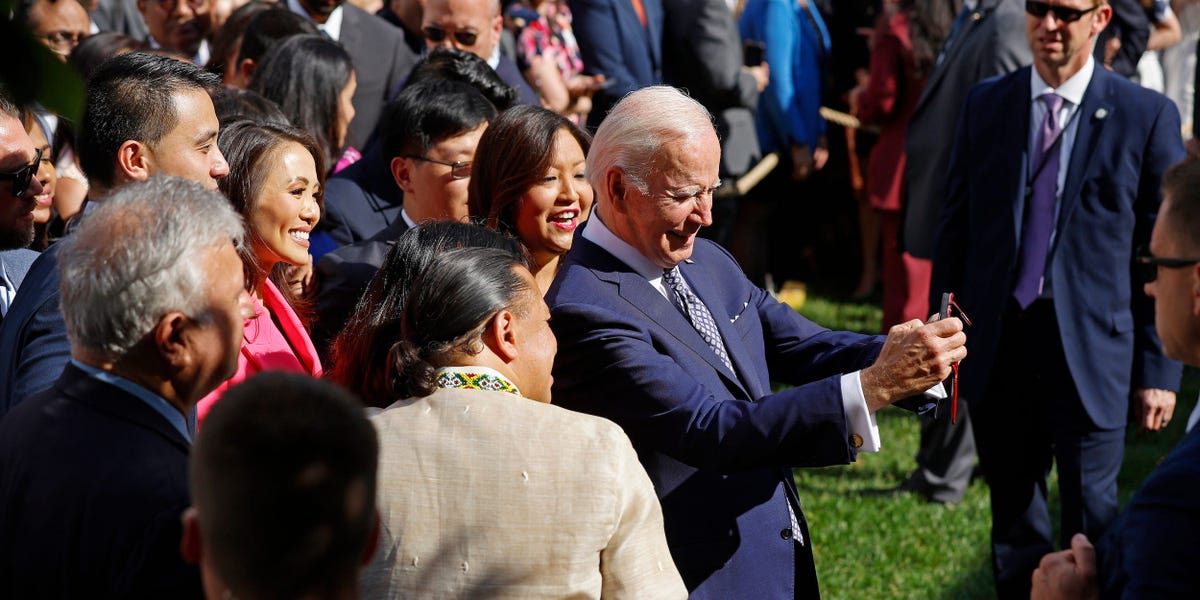
TikTok Let Its Guard Down When Biden Joined App: WSJ
- TikTok execs thought the US was mostly over banning the app after Biden joined, per WSJ.
- Then, the House introduced a bill that could result in a US ban on the social media app.
- TikTok and free-speech groups argue the ban violates First Amendment rights.
Thanks for signing up!
Access your favorite topics in a personalized feed while you’re on the go.
download the app

Before the House introduced its bill to ban TikTok, executives at the social media company were convinced that calls for a ban on the app had quieted — partially because of President Joe Biden.
Per a report from The Wall Street Journal, the Biden campaign’s decision to join the app in late February and post dozens of videos helped reassure execs, who visited TikTok’s Singapore office two weeks ago and relayed the good news.
“The committee and Biden administration officials operated quietly enough that TikTok’s large lobbying and government-relations operations in Washington didn’t realize how close the bill was to reality,” the Journal wrote in its report.
The House bill sponsored by Republican Rep. Mike Gallagher of Wisconsin and Democratic Rep. Raja Krishnamoorthi of Illinois was introduced days after the Singapore meeting, per the Journal, citing “interviews with current and former employees of TikTok and its parent company, as well as government aides, policy advisers, and lawmakers.”
The bill, which would force Chinese company ByteDance to sell TikTok to non-Chinese owners or face a ban in the United States, had been in the works for a year and was shaped by Biden administration officials, the Journal reported.
Biden has publicly indicated he would sign the ban should it hit his desk.
TikTok, the American Civil Liberties Union, and other free-speech groups have argued that the ban would violate the First Amendment right to freedom of speech.
A fellow at the Center for Strategic and International Studies, Caitlin Chin-Rothmann, told The Atlantic that if the company were to sue, the US government would have to prove that “a TikTok ban is narrowly tailored to advance a significant government interest, and that there are no less restrictive means of advancing that interest.”
Per the Journal, House legislators and Biden officials expected that the company may sue on the grounds of First Amendment violations and worked together to craft a text that could best survive a legal challenge.
“Framing this as a national security threat offers the government considerable latitude when it comes to First Amendment questions,” Sarah Kreps, a political scientist and director of the Tech Policy Institute at New York’s Cornell University, previously told Business Insider.
The House is set to vote on the bill on Wednesday. A TikTok spokesperson previously told BI it expects it to pass in the lower house.
Representatives for Biden and TikTok did not immediately respond to a request for comment sent by BI.


